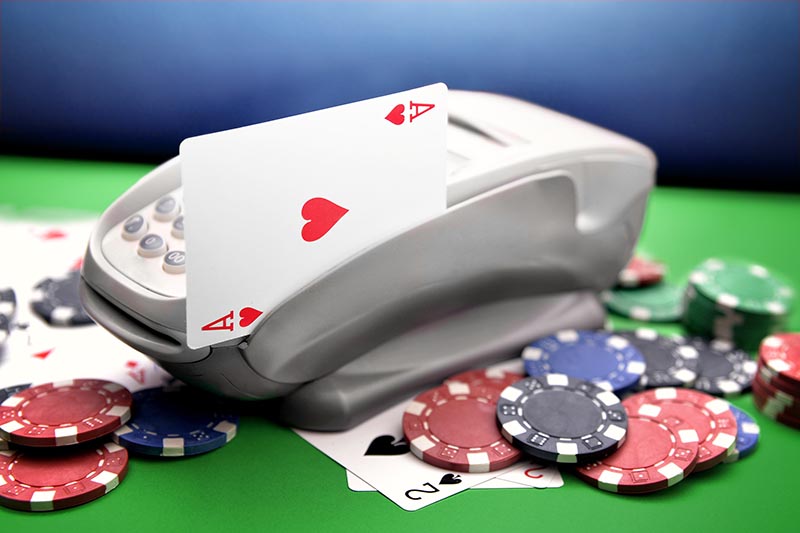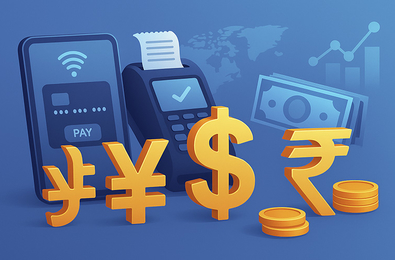Small Payments and Limit Management: Psychological Factors
Online Casino Market experts talk about in-game purchases in the casino and sports betting industry. You will learn why their popularity is growing annually and what control mechanisms regulators offer.
About Mini-Transfers in the Niche

These are intra-platform settlements that customers make to receive additional features, items, and bonuses.
In the gambling and betting industry, this concept is often used to purchase internal currencies associated with the chances of winning.
Popular Formats
Let us consider what players usually acquire on iGaming sites:
- Loot and “mystery” boxes. The tool is often used in online casinos, slot machines, and mobile content. Its essence lies in buying a “sealed” virtual item that contains random prizes.
- Purchase of in-game currency. These are tokens, chips, coins, and conditional credits, which can then be used to scroll reels in slots, participate in fantasy sports, or select bets on the outcome of cyber competitions.
- Bonuses and boosters. These can be premium rotations, extra cards in poker, unique functions, and VIP subscriptions with exclusive benefits.
- Continuation of the game. In this case, clients pay to keep participating in sessions after they run out of “energy” or “lives”. This practice is widespread in content for smartphones with a dynamic betting process and support for a multiplayer mode.
iGaming Verticals Where the Solution Is Used
Microtransactions are a common phenomenon that can be found in many projects:
- Mobile and online casinos. Operators offer their customers to buy in-game chips and tokens, pay for access to exclusive slots, and order re-spins or free rotations.
- Online poker platforms. Microtransactions allow users to purchase virtual chips and get an opportunity to retake the cards.
- Sports betting. Small internal settlements are spent on premium content, forecasts, detailed analytics, and improved ratio.
- Blockchain projects. Players can buy tokens, NFTs, and other virtual objects in the metaverse.
Psychological Nuances of Mini-Transactions

They are based on the principles of behavioural psychology, quickly engaging the audience and forming their habits. The solution is built into the mechanics of gambling entertainment in such a way as to motivate users to spend money more often, but without the feeling of significant financial losses.
Reinforcement and Addiction Mechanisms
In this case, 2 key aspects can be distinguished:
- The effect of variable remuneration. It is based on the fact that prizes are credited randomly, not for specific actions. Clients get used to unexpected wins and continue to place micro bids, hoping only for luck.
- Dopamine system. Gaming content and mini-transactions activate the production of dopamine in the human brain. The hormone is associated with pleasure and motivation — these are the emotions that people experience when replenishing an account and spinning reels in slots.
Cognitive Distortions
The main mechanisms that encourage microtransactions include:
- Illusion of control. Players often believe that they can affect a random outcome (for example, choose a correct moment to place a bet). This leads to increased involvement and more frequent, but smaller payments on the platform.
- “Gambler's Fallacy”. Customers think that after a series of losses, the probability of winning increases significantly, although in fact, the result remains unpredictable. This motivates casino visitors to make more microtransactions to get even faster.
- The “almost win” effect. If users are close to victory, their brain thinks of it as a signal that success can be easily reached. Gamblers place repeated bets and increase the costs.
- Blurred perception of value. In most solutions, real money is converted into virtual currency (chips, credits, or tokens). Because of this, the connection with real cost is lost, and people spend more than they planned.
Monetisation Techniques
The most popular aspect of microtransactions is the FOMO (Fear of Missing Out) effect.
Time-limited promotions and exclusive items motivate players to make such payments immediately so as not to miss their chances. This creates a sense of urgency and sedates the rationality of actions.
Among the common monetisation techniques are:
- Price framing. This is a “psychological discount” — the sale of products in such a way that buying more seems more profitable (for example, 1,000 chips for $5 or 2,500 for $10). This technique encourages clients to spend increased resources, even if they did not initially intend to do so.
- Play-to-Win. The model is widely used in modern casinos and poker rooms. In many types of gambling entertainment, buying special bonuses or improved conditions makes winning more likely. This puts pressure on customers, and they want to keep up with other participants.
- Anchoring. People who have already invested money are more likely to continue spending to get something back or at least finish what they started. This is especially important in loot box mechanics.
Social and Emotional Aspects
Reasons why players make microtransactions:
- Community engagement. Some gamblers prefer to make smaller deposits in order to stay in the group or constantly participate in exclusive events. The feeling of belonging to something turns spending into a justified action.
- Recognition and status. Rare items, bonuses, or a high level of progress become symbols of high status. Customers who use micropayments are perceived as more successful, which creates additional motivation for investing.
- Momentary happiness. Mini-operations can cause a feeling of pleasure, especially if people get the desired item or reward. However, this sense quickly fades, provoking new expenses.
How Limits Help Control Microtransactions

Such tools play a key role in managing small payments. They can reduce the risks of ludomania, prevent excessive spending, and ensure responsible gaming.
Setting limits is an important condition for licensed entrepreneurs. The decision to ignore such an action leads to a violation of the principles that ensure an adequate attitude toward betting, huge fines, or even the cancellation of a permit.
Main Types of Restrictions in Gambling
Control mechanisms can be divided into 3 groups:
- Financial limits. These are the maximum amounts of deposits per day, week, or month. It prevents impulsive spending. This category also includes restrictions on the sizes of bets and losses —after them, clients can no longer continue to spin the reels in a given period.
- Time limits. Users can choose the maximum game time from 1 to 7 days. Popular options also include breaks and self-blocking. This is a temporary disconnection from the platform (for hours, days, and weeks), which reduces the likelihood of compulsive behaviour.
Benefits of Setting Restrictions
How this tool helps control microtransfers:
- Prevention of impulsive spending habits. Customers cannot deposit more than the limits allow.
- Promotion of conscious betting. People have the right to plan their budget in advance, including small payments and major replenishments.
- Protection from problem gambling. The option reduces the risk of ludomania and gives an opportunity to stop in time.
- Increased responsibility of operators. Companies that implement strict limits demonstrate concern for their clients.
Many entertainment portals also offer self-blocking and reality checks that notify players about the duration of sessions and their expenses. All this makes mini-payments more transparent and secure, helping providers comply with RG principles.
Microtransactions and Limits in iGaming: What the Law Says

The regulatory framework depends on the jurisdiction. The key requirements are aimed at protecting users, preventing addiction, and ensuring transparency.
Deposit and Betting Restrictions
In many countries, operators are required to offer customers the ability to set limits on:
- the amount of account replenishment;
- the entire loss;
- the size of bids.
In some jurisdictions (for example, in the UK), the authorities require providers to actively impose restrictions and monitor user behaviour over time. In the EU and Canada, there are self-adjusting options and limits on the maximum bet.
The governments of European jurisdictions (Great Britain, Germany, and Sweden) require iGaming sites to offer clients self-blocking features for a selected period.
Regulation of Microtransactions
The legislative framework varies depending on the region:
- In many EU countries (the Netherlands, Belgium, and France), loot boxes are considered gambling and are therefore either banned or subject to severe restrictions.
- China, South Korea, and Japan require the disclosure of the probability of items that appear from loot boxes.
- The EU and the US are discussing measures to improve control over mini-payments and in-game purchases.
The key rules of regulators are to promptly inform users about microtransactions, especially if they are associated with the risk of developing ludomania.
European legislation prohibits aggressive marketing tactics that encourage players to spend more.
The Main Things about Small Payments and Limits in iGaming
Such tools are a trend in the casino and sports betting sector.
Key factors that entrepreneurs should take into account:
- The nature of the concept is based on a combination of psychological, gaming, economic, and regulatory aspects. They create a strong, engaging mechanic, but also require a responsible attitude from operators and their clients.
- Legislation obliges providers to implement limits on deposits, bets, and playing time, as well as ensure the transparency of small payments. The trend towards increased regulation is becoming stronger, especially in the areas of protecting minors and preventing ludomania.
From the Online Casino Market studio, you can order a turnkey platform, bookmaker software, Telegram project, and other comprehensive solutions.
Check the information used to contact us carefully. It is necessary for your safety.
Fraudsters can use contacts that look like ours to scam customers. Therefore, we ask you to enter only the addresses that are indicated on our official website.
Be careful! Our team is not responsible for the activities of persons using similar contact details.







 Demo
Demo 


